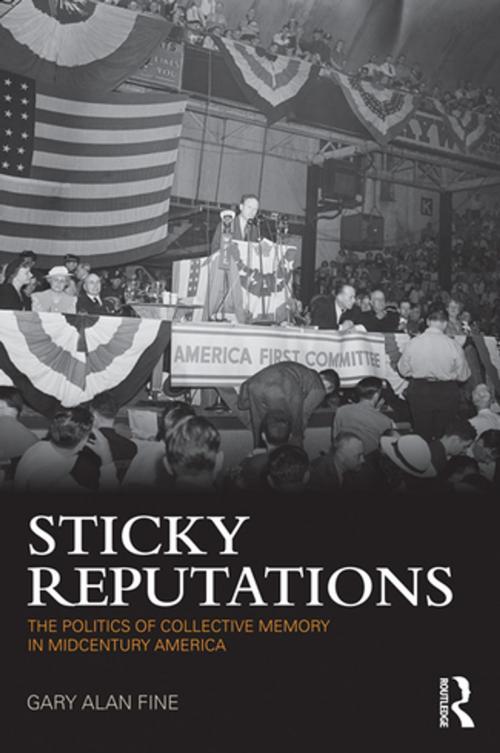Sticky Reputations
The Politics of Collective Memory in Midcentury America
Nonfiction, Social & Cultural Studies, Social Science, Sociology| Author: | ISBN: | 9781136485640 | |
| Publisher: | Taylor and Francis | Publication: | May 22, 2012 |
| Imprint: | Routledge | Language: | English |
| Author: | |
| ISBN: | 9781136485640 |
| Publisher: | Taylor and Francis |
| Publication: | May 22, 2012 |
| Imprint: | Routledge |
| Language: | English |
Sticky Reputations focuses on reputational entrepreneurs and support groups shaping how we think of important figures, within a crucial period in American history – from the 1930s through the 1950s. Why are certain figures such as Adolf Hitler, Joe McCarthy, and Martin Luther King cemented into history unable to be challenged without reputational cost to the proposer of the alternative perspective? Why are the reputations of other political actors such as Harry Truman highly variable and changeable? Why, in the 1930s, was it widely believed that American Jews were linked to the Communist Party of America but by the 1950s this belief had largely vanished and was not longer a part of legitimate public discourse? This short, accessible book is ideal for use in undergraduate teaching in social movements, collective memory studies, political sociology, sociological social psychology, and other related courses.
Sticky Reputations focuses on reputational entrepreneurs and support groups shaping how we think of important figures, within a crucial period in American history – from the 1930s through the 1950s. Why are certain figures such as Adolf Hitler, Joe McCarthy, and Martin Luther King cemented into history unable to be challenged without reputational cost to the proposer of the alternative perspective? Why are the reputations of other political actors such as Harry Truman highly variable and changeable? Why, in the 1930s, was it widely believed that American Jews were linked to the Communist Party of America but by the 1950s this belief had largely vanished and was not longer a part of legitimate public discourse? This short, accessible book is ideal for use in undergraduate teaching in social movements, collective memory studies, political sociology, sociological social psychology, and other related courses.















